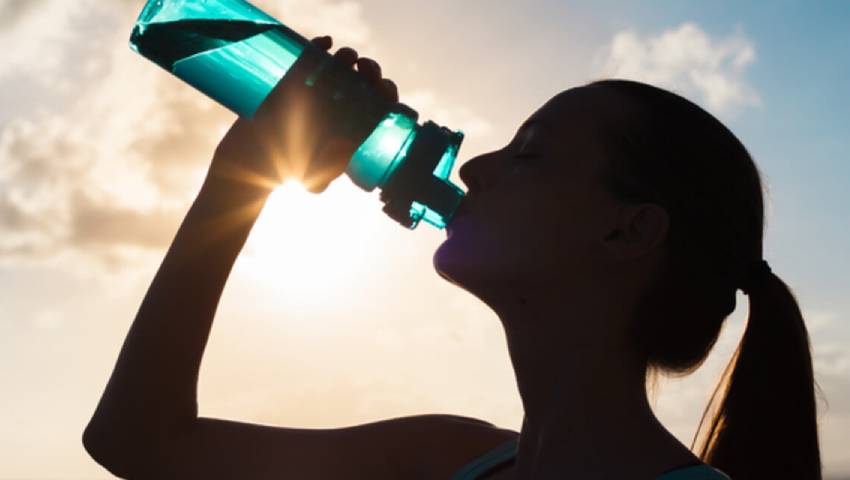
- 16/09/2018
- Dr. Srivatsan Gurumurthy
- 0 Comments
- Blog
Dehydration In Children- Warning Signs & Prevention
Most of the human body is made of water, so when the temperature rises and the body tries to cool itself by sweating, dehydration can be a real concern, particularly for children, especially in the summer months.
Total body water constitutes approximately 75 per cent of body weight at birth and declines to about 60 per cent from the age of 2 years onwards. Total body water (TBW) is compartmentalized into intracellular fluid (ICF) and extracellular fluid (ECF). Get more guidance on dehydration from Dr. Srivatsan Gurumurthy at GEM Hospital Chennai.
What is dehydration?
Dehydration is the loss of water and salts (electrolytes) from the body. We need water to maintain enough blood and other body fluids to function properly, and to maintain our blood pressure.
Along with the fluids, the body also needs electrolytes like sodium, potassium which are salts normally found in blood, other fluids, and cells. Dehydration is one of the risk factors for heat exhaustion and heat stroke, which causes over 400 deaths per year! The early stages of dehydration often do not cause any symptoms which if left unnoticed can lead on to greater problems.
Drinking 6-8 glasses of water a day helps our body function efficiently. It is estimated that if we lost just one-tenth of the water within our body, we would not be able to stand, let alone walk.
Although fluid loss occurs during hard physical work, even simple tasks like gardening, walking or riding a bike can result in a significant loss of fluid within a very short period. The water loss is of a higher magnitude, faster pace and often progresses unnoticed in the months of summer which makes it a high-risk period for dehydration.
- Babies and small children feel the effects of heat sooner and more seriously than adults.
- Children in cars need special protection from heat as cars can heat up very quickly.
- A parked, locked car can reach very high temperatures very quickly.
- At highest risk of dehydration are babies under one year old, particularly if they are suffering from a co-existant illness like diarrhoea.
How do we lose fluid?
The body may lose fluids in a variety of ways:
- when urinating;
- when you vomit or have diarrhoea;
- when sweating;
- from the lungs when you breathe.
For every 100 calories metabolized, the body loses about 65 ml water in the urine, 40 ml by sweating, 15ml from the lungs and about 5 ml in the faeces and gains 15ml from production as a result of metabolic processes. Thus the net loss of water is 110 ml per 100 calories metabolized.
Stages of dehydration:
The early stages of dehydration usually have no signs or symptoms, but can include dryness of the mouth and thirst. Other symptoms in early or mild dehydration may include dry, warm skin; dizziness; or cramping in the arms and legs.
As dehydration increases, signs may include:
- a flushed face; (reddening of the face)
- reduced amounts of urine production;
- dark, yellow urine:
- difficulty in passing urine;
- sunken eyes;
- a sunken fontanelle in infants;
- irritability;
- abnormal behaviour; and
- the absence of tears.
In severe cases, dehydration can result in hypovolemic shock, which affects blood flow in the body, and even death.
Are children at a higher risk for dehydration?
Children don’t adapt as well as adults to exercise in hot, humid weather. They produce more heat, sweat less and may be less likely to drink enough fluids during exercise all of which increase their risk of dehydration.
Dehydration can cause mild to severe heat-related illnesses, such as heat cramps, heat exhaustion and heatstroke. Children who go out for football, cricket and other sports coaching classes in summer may be at risk of developing dehydration and other heat-related illnesses.
Risk factors:
Your child may be particularly vulnerable to dehydration and heat-related illness during summer workouts if he or she:
- Rarely exercises
- Is overweight or obese
- Has had a recent illness that caused vomiting or diarrhoea
- Has had a previous heat-related illness
- Drinks caffeinated beverages or takes medications that can cause dehydration, such as antihistamines and diuretics.
How to combat dehydration?
Preventing dehydration:
It is recommended that during hot weather we should be drinking at least one-and-a-half cups of water every half hour; at least one-and-a-half cups of water 20�30 minutes before playing or exercising in the heat; and drinking water even when not thirsty.
Here are some practical tips to prevent you from becoming dehydrated this summer:
- Drink plenty of fluids: on average it is recommended to consume at least 8- eight-ounce glasses of fluid a day
- Sports drinks can encourage active people to drink more fluids because they are flavoured and are higher in electrolytes like sodium.
- Avoid caffeinated beverages and alcohol, both contain substances that will cause dehydration
- Avoid carbonated beverages because the carbonation may cause bloating or a feeling of fullness and prevent adequate consumption of fluids
- Wear light coloured, absorbable, loose fitting clothes
- Stay in cool, shaded areas and protect your skin with sunblock whenever possible
- If you are with someone, particularly a child or young person, who suddenly becomes dizzy, nauseated or weak, get them indoors or in the shade. Make them lie down. Replace lost fluids with cool water.
- If someone shows signs of dry, red skin, fast pulse, feels cool and clammy to the touch, or looks confused or delirious, that person is in extreme danger and you should seek medical attention immediately.
By recognizing the signs and taking measures to prevent dehydration, you can look forward to a sizzling, safe, and superb summer vacation. If you have concerns about dehydration in children, consult Dr. Srivatsan Gurumurthy at GEM Hospital Chennai And SS Clinic for expert guidance.

